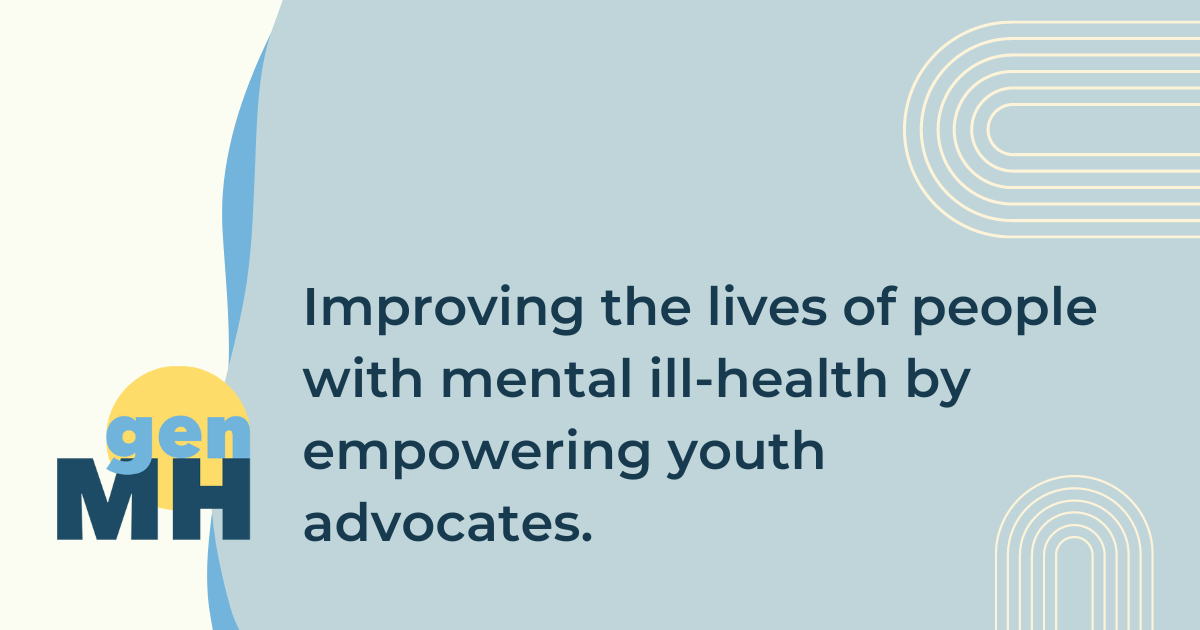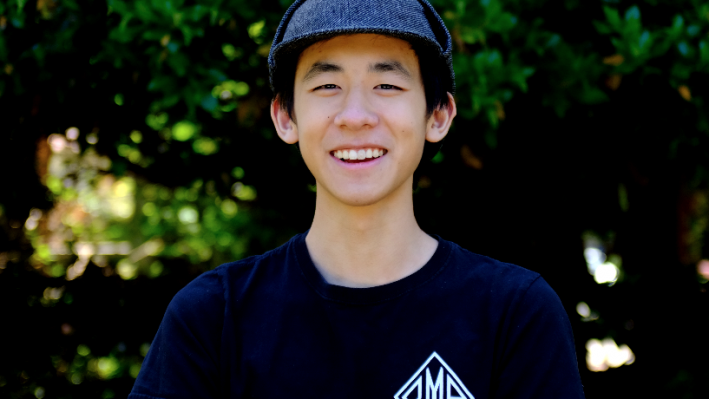Home / Special Initiatives / MMHI / MMHI Events
Events
Media and Mental Health Initiative
Explore More
2024
- National Telecommunications and Information Administration
NTIA joins Stanford University to advance kids’ online safety
On March 13th, leadership, staff and youth advisors from the department's Center for Youth Mental Health and Wellbeing participated in an event on youth online safety and well-being hosted by the Stanford Internet Observatory and Social Media Lab with the Stanford Center for Youth Mental Health and Wellbeing in collaboration with the White House Kids Online Health & Safety Task Force. The day opened with a panel on youth social media experiences led by Program Director Vicki Harrison and seven youth leaders from the Center's GoodforMEdia program. In addition to representatives from the Biden-Harris Administration, the event convened leaders from several major technology platforms, academic institutions and civil society groups, and served as one of three planned nationwide listening sessions to inform future research and forthcoming industry guidance, policy recommendations and resources being developed by the White House’s Kids Online Health & Safety Task Force. More coverage here.
2023
- Stanford CyberPolicy Center Fall Webinar Series - Dec 5, 2023
Centering Youth Voice for Healthier Social Media Experiences
In the midst of the national youth mental health crisis, parents, educators and policymakers are concerned about the role social media plays in contributing to this issue. Vicki Harrison, Director of Programs, shared her thoughts on how youth mental health advocates can continue to center youth voice in efforts to create healthier social media experiences.
- Michigan DHHS - April and June 2023
TEMPOS Webinars – How to Safely Report on Suicide
How we talk about suicide matters and can help reduce stigma and prevent suicide. TEMPOS (tool for evaluating media portrayals of suicide) allows media professionals, public health officials, researchers and suicide prevention experts to assess adherence to the recommended reporting guidelines with a standardized rating scale.
- SJN - November 2023
Reporting On Youth Suicide: Tools Journalists Can Use Now To Reduce Harm & Highlight Potential Solutions
Youth mental health is being framed as a crisis across the US. Is it possible for reporters to cover what’s working to address this public health concern while also ensuring they don’t cause further harm? Solutions Journalism Network has teamed up with the Stanford CYMHW’s Media and Mental Health Initiative to share the evidence-based tool TEMPOS.
- NorCal Media Day - October 2023
Writing About Suicide in a Campus Setting
Former editors of the Stanford Daily presented their Reporting Responsibly on Campus Suicide (RROCS) to high school journalists during an all-day media conference. The RROCS team helped student journalists develop stronger reporting skills around mental health topics and better support youth wellness in their communities.
- Stanford d.school - May 2023
Designing Social Media for Youth Mental Health — Stanford d.school
The Stanford Center for Youth Mental Health & Wellbeing’s GoodforMEdia teamed up with the Stanford d.school to host a special youth-led event to re-design social media that prioritizes and protects youth mental health. Young people shared their lived experience through youth testimonials and participated in discussions on important legislation.
- Children and Screens Ask the Experts – Oct 23, 2023
Depression: Youth Mental Health and Digital Media (#AskTheExperts)
Depression and other mental health conditions are an increasing concern for youth and can be a significant source of suffering and family stress. Vicki Harrison of the Stanford Center for Youth Mental Health and Wellbeing and the Stanford Psychiatry Media and Mental Health Initiative joined a panel of experts to discuss how digital media impacts youth mental health.
- SJN - December 2023
Reporting On Suicide On Campus: Solutions-focused Tools For Student Journalists
Student journalists are playing a crucial role in covering mental health on campuses. A group of former editors at the Stanford Daily created a supplement to the TEMPOS tool. Reporting Responsibly on Campus Suicide (RROCS) addresses the unique needs of student journalists balancing their roles as classmates and friends with their responsibilities as reporters.
2022
- Generation Mental Health - 2022
Global Mental Health: Agents of Change, “Effects of Social Media and News on Mental Health – Panel”
Vicki Harrison participates in a panel discussion that examines the effects of news and social media on the mental health of individuals, the stigmatization and public awareness of mental illness, and initiatives that help individuals navigate mental health in a digital world and mobilize media for positive change.
- American Association of Suicidology - 2022
American Association of Suicidology 55th Annual Conference
Featured Plenary: “Portrayals of Suicide in the Media”
Panel Discussion with our MMHI team and Sheila Nevins, Executive Producer at MTV Documentary Films/Paramount+ on the challenges and lessons learned in producing a major network documentary, “Each and Every Day,” and the impact of suicide and mental health in popular media on youth mental health.
Workshop: “Innovative Approaches for Collaborating with the News Media to Prevent Suicide Contagion” Our TEMPOS team facilitated a workshop on TEMPOS and innovative methods of working with journalists to improve media messaging on suicide.
- Prizmah Mental Health Summit 2022
Mental Health, Suicide and the Media: What Clinicians Should Know
Dr. Victor Schwartz discusses the interaction between media portrayals of mental illness and stigma, understanding media influenced suicide contagion, and a best practice model for safely reporting and portraying suicide in the media.
- Spitfire University - 2022
Suicide and Mental Health Narratives in the Interest of Public Health
Vicki Harrison and Chloe Sorenson provide a special learning session on writing about suicide and mental health, and how the words and images we use matter.
- 2022 HJ Conference
Association of Health Care Journalists Annual Health Journalism Conference
Workshop: “How to write about suicide” Vicki Harrison participates in a panel and hands-on, skill-building workshop for journalists on how to minimize potential harms in reporting on suicide using TEMPOS and developing a better understanding of this issue as a public health problem.
2021
- Children and Screens 2021
Looking Back and Moving Forward: Children’s Pandemic Experiences So Far and Where to Go From Here
Program Director, Vicki Harrison, served as an expert panelist on Oct 6, 2021 for a Children and Screens Ask The Experts webinar. An interdisciplinary panel of experts discussed the physical, mental, and social impacts of COVID-19 for young people. Panelists discussed support in the next phase of the pandemic, virtual learning, and the need for media literacy.
- Art & Tech For a Better World 2021
A new generation of designers
Vicki Harrison, Program Director for Stanford Psychiatry's Center for Youth Mental Health & Wellbeing presents #GoodforMEdia the peer-mentoring platform designed and developed at Stanford with young people 16-25.
- International Center for Journalists (ICFJ) 2021
How Journalists Can Best Report on Mental Health and Suicide
Victor Schwartz speaks at the International Center for Journalists about the importance of safe reporting of suicide. “Everything that is the natural impulse of a journalist in writing a good story is problematic when reporting on suicide. The media guidelines are meant to direct writers...so the audience does not identify with events of the story or with the person.”
- The Kennedy Forum 2021
Our Words Matter: The Role of Journalists in Creating Safe, Human-centered Stories about Mental Health
Dr. Steven Adelsheim and Scott MacLeod, Co-Founder of The Sophie Fund, discuss how to promote responsible and fair communications in the media and how journalists can play an influential role in educating the public to reduce the prevalence of sensationalism that fuels stigma and discrimination regarding mental health and substance use disorders.
- 5th Annual Student Mental Wellness Conference hosted by Wellness Together and California Department of Education 2021
Youth-led Mental Health Campaigns Promoting Healthy Social Media Use & Cultural Literacy
The GoodforMEdia team present on how peer-focused, youth-led initiatives can support middle-high school student mental health by highlighting the #goodforMEdia campaign as well as preliminary outcomes of surveys illuminating how culture, race, and ethnicity impact mental health and help-seeking.
- Made of Millions Foundation - 2021
Media and Youth Mental Health
In episode 4 of Generation Change, Vicki Harrison of the Stanford Center for Youth Mental Health and Wellbeing hosts a panel of youth guests from allcove and the #GoodforMEdia project to discuss how online spaces impact their emotional wellbeing.












